A North Korean Refugee’s Legacy of Freedom | Holly & Mia’s Story
As a little girl in North Korea, I dreamt of becoming a musician. When I was 6 years old, I saw my school teacher playing the organ. After class one day, I went up and placed my hands on the keys, trying to mimic what she played. When the teacher got back, she asked who touched the organ. All the kids looked at me and I thought I’d get in trouble, but instead of punishing me, she started teaching me how to read music. Eventually, my teacher came to my home and urged my parents to send me to Pyongyang, North Korea’s capital, to pursue music with some of the country’s best musicians.

But my parents knew I could not achieve my dream. My grandfather had been a landowner before the North Korean regime took power. When the Korean War broke out, he had fled to the South, never to be heard from again. The regime didn’t forget my family’s past - to them, we were traitors. Before I was even born, my future had been decided.
I couldn’t attend a university or get a good job. While others studied, I would have to dig for coal and sell it.
One night, I was gathering firewood on a mountain near the South Korean border with another girl. In the distance, I saw a town that was dazzlingly bright in the dark evening. Electricity is a luxury in North Korea, and I soon realized I was looking across the border. I had secretly watched South Korean movies for years. I had seen the delicious food they ate and the amazing places they traveled. I stared at the lights and dreamed of what my life could be.
The dream was too powerful to ignore. I worked every day from sunrise to sunset to save money for my escape.
I gathered rare mushrooms on the slopes of North Korea’s tallest mountain, through the bitter cold. After sixty trips, I had enough money to hire a broker to help me escape into China.
But I trusted the wrong broker.
The broker betrayed us and sold us out. Soldiers were waiting for us at the meeting point and we were dragged from the river to an interrogation cell. The secret police want you to confess that you were trying to defect to South Korea. They beat you with a stick and slam your head against a wall until you just want the pain to stop. But if you confess, you’re sent to a political prison camp to die like an animal.
So I refused to say anything. They kept beating me and screaming at me, but I closed my eyes and held on to my dream of freedom. It was two weeks before they finally sent me to a detention center.

A woman in my cell told me about another broker who could help me escape. But there was a catch - I would have to be sold to a man in China.
I chose the unimaginable. I was sold for less than $3,000.
It is hard for me to talk about this time in my life. The man who bought me kept me in a small bedroom in his house. In one month, I was pregnant. When he found out, he told me to get an abortion. I refused. He tried to drug me and take me to get an abortion while I was unconscious.
One night I felt sick and thought it was food poisoning, but I was in labor and rushed to the hospital. After twenty hours, the doctor had to perform an emergency c-section. The man who bought me complained about the extra expense.
But when I woke up, there was my beautiful baby. I put her on my chest and knew she was my everything. My new dream was to give my daughter Mia a chance to have a better life than me.

I knew we couldn’t stay in China. The man who bought me didn’t want a child, and every day we stayed was another day we could get caught. But I couldn’t take a newborn baby on the dangerous journey. I waited until Mia was one year old, making secret plans with someone who could help us escape - now I know they were part of LiNK’s rescue network.
The day of our escape finally came, and we went to a safe house. I had Mia on my back and a bag full of diapers, clothes, and a small bracelet that was a gift for her. It was everything we had. We met up with other North Koreans, and they were not happy that Mia and I were joining them. I could not blame them. There were stories about groups that were caught because of a crying baby.
Taking care of a one year old is hard enough. Doing so while avoiding the Chinese police was one of the hardest things I have ever done.
I didn’t want Mia to cry so I never put her down, even when my back and arms ached from rocking her. We never stopped for more than a few hours so I had to breastfeed her along the way. Whenever we did have a break, I’d change her diapers, clean her, and make sure she ate enough. By the time I was done, we had to move again. I didn’t have time to eat so I went days with barely any food.
But every mile we traveled brought us closer to our new life. One hot morning, we climbed into a boat and crossed a river. With Mia in my arms, we were met by LiNK’s field team who welcomed us into freedom.

There are two days I will never forget. The day Mia was born and the day I arrived in the United States. I cried so much walking out of the airport. I had no idea what our new life would look like, but we were together and we were finally free.
Now when Mia falls asleep in my arms, all I feel is happiness. My story used to only be about my dreams, but now, I am watching my daughter grow into a fearless and curious person. If I never decided to escape and if I didn’t have LiNK’s help, Mia’s life would be so different. Instead of growing hungry, she has a full stomach. Instead of learning North Korean propaganda, she’s learning about science and animals and the world. Instead of fearing we could be sent to a political prison camp, I just worry she’s growing up too soon.
I believe that one day, every North Korean will be free. And every child will be able to write their own story, like my Mia.

Thanks to Holly’s bravery and the help of LiNK supporters around the world, Mia will never know a life without freedom. Holly will be leaving behind a legacy of freedom for her daughter and for generations to come.
You can help rescue more North Korean refugees and support them as they begin their new lives.
Give today
A North Korean Refugee’s Daring Escape By Boat | Gyuri Kang’s Story
Escaping from inside North Korea remains almost impossible today. Borders remain sealed by the legacy of pandemic-era restrictions, while surveillance in China continues to intensify. But in 2023, a group of North Koreans crossed into South Korean waters on a small fishing boat—a rare and extraordinary way to reach freedom. Abroad the vessel was 22-year-old Gyuri Kang with her mother and aunt.

You were never supposed to know my name, see my face, or hear my story. Because I was one of 26 million lives hidden inside North Korea.
I was born in the North Korean capital, Pyongyang. The first time the government decided my future without my consent, I was only a child. My family was exiled to a rural fishing village because of my grandmother’s religion.
In the system we were living in, not even your beliefs or thoughts are truly your own.
On my way to school, youth league officers would inspect my clothes and belongings, punishing me for even a hairpin or a skirt that was a few centimeters too short. At school, we were taught that “we live in the most dignified nation in the world,” but outside those walls, people were collapsing from hunger in the streets.
Careless words overheard by a neighbor could turn into a knock at the door in the middle of the night. The radio played government broadcasts all day long, and searching other frequencies was a risk no one dared to take. This is how the North Korean government maintains control over people. By convincing you that survival depends on submission.

I returned to Pyongyang as an adult. I majored in table tennis at the Pyongyang University of Physical Education and imagined myself making a new life, built on talent and hard work.
But reality was nothing like what I had dreamed. I came to understand a deep, painful truth: In the end, everything was determined by how well you obeyed, not how hard you worked.
Frustration and emptiness built up until I finally decided to leave Pyongyang.
I wanted to help support my mother and aunt, so I moved to the coast to try and build a life of my own. My mother used all of her hard-earned life savings to buy me a small wooden fishing boat so I could start a business harvesting clams.
That boat was more than a way to make a living. It was a daily reminder of her sacrifice, and the depth of their love and trust in me. If the money I earned with my own hands could put even one less wrinkle on her forehead, that was enough for me.
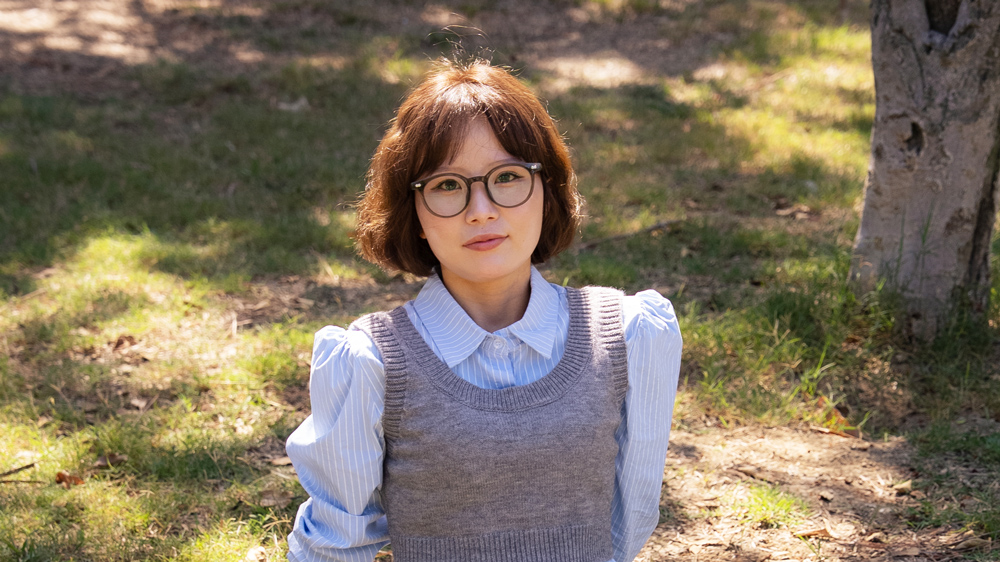
As a boatowner, I woke up early in the mornings to prepare supplies, get the crew together, and encourage them. I inspected the condition of the boat and hired people to help fix the engine and other faulty parts. Although I couldn’t go out to sea because I’m a woman, I was responsible for ensuring the ship operated smoothly.
But the harder I worked, the more government officials came to me—demanding baskets of clams and money. They justified their demands by saying: “The Party orders it,” threatening to punish anyone who refused. Every night I agonized over how to protect my people and keep my business going, and how I should respond. In those moments, I would remember the love and devotion my mother and aunt had poured into me and it gave me strength to persevere.
To escape my reality, at night I secretly watched South Korean TV shows on a television that was smuggled in from China.
My world turned upside down. With my friends who were also watching South Korean media, we would cautiously express our dissatisfaction together while also copying the hairstyles and outfits we saw in dramas. Sometimes, we would even try to mimic South Korean words or accents when talking or texting together.
But under Kim Jong Un, punishments became much more severe. Two people I knew were executed for watching and sharing foreign media. Our lives became harder, control over young people became more intense, and our resentment began to grow.

But no matter how much they tried to repress us, frustrated young people like me continued watching forbidden content as a way to forget reality. Foreign media has quietly found its way into North Korea for decades. As I grew up, it began spreading more than ever before, through USBs passed between friends or broadcasts picked up on illegal devices.
Many defectors, like me, can remember the exact episode of a TV show, a specific South Korean song, or even a traffic report, that planted the first seeds of doubt.
Of course, dramas and movies don’t tell the whole story, but they show a life that contradicts everything we were taught. And it makes you wonder: if life is so different out there, why does it have to be this way here?
I realized it doesn’t just show people that different lives exist. It gives them the belief that their life could be different. And that belief gives people the courage to choose a different future.
The thing about information is once you learn something, you cannot unlearn it. I remember watching people on my screen speak freely, laugh openly, and pursue their dreams—things that were unimaginable in North Korea. For the first time, I wondered if everything we were taught might be wrong. That doubt led to questions, and my curiosity became too strong to ignore. Now that I had seen the truth, I could never go back to the person I was before.
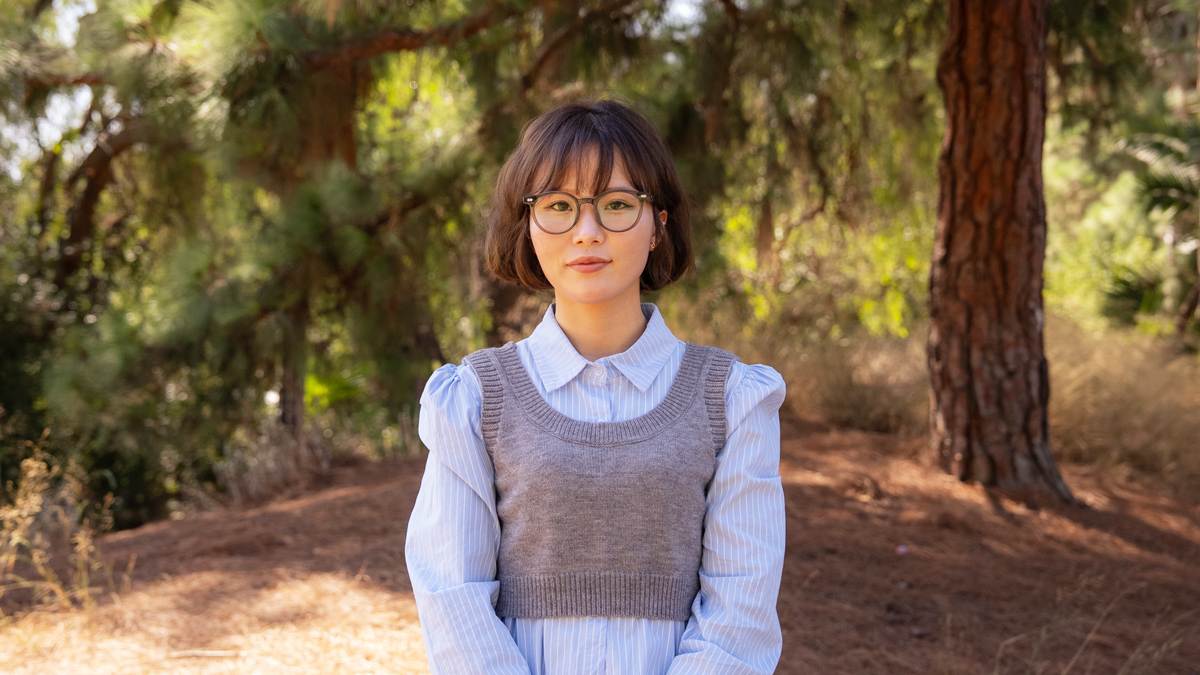
Escaping North Korea cannot be explained by the simple word “leaving.” This was especially true for me because I escaped together with my mom and my aunt. They had placed their trust in me when they gave me money for that boat. And now I was placing my trust in that boat to carry us across the sea to freedom.
I planned our escape in complete secrecy.
I bought a smuggled GPS device from China, carefully traced our route, observed the currents and tides, learned the patrol schedules of the guard boats, and figured out the blind spots of the coastal guard posts. I meticulously checked the condition of the boat and quietly prepared all the food and supplies we would need. I trained my body for the wind and the waves, and my mind for the terror of being caught.
Some nights I woke up in a panic. Other times my confidence crumbled and I thought, maybe I should give up and just accept the life I have. But in those moments, I imagined what waited at the end of the journey.
I wasn’t leaving just to stay alive. I was leaving so that I could live like a human being.
On the night we left, we climbed into my boat and pushed off into the dark water. I gripped the rudder and let the current carry us south, carefully navigating around the guard posts and patrol boats who were on the water looking for people like us.
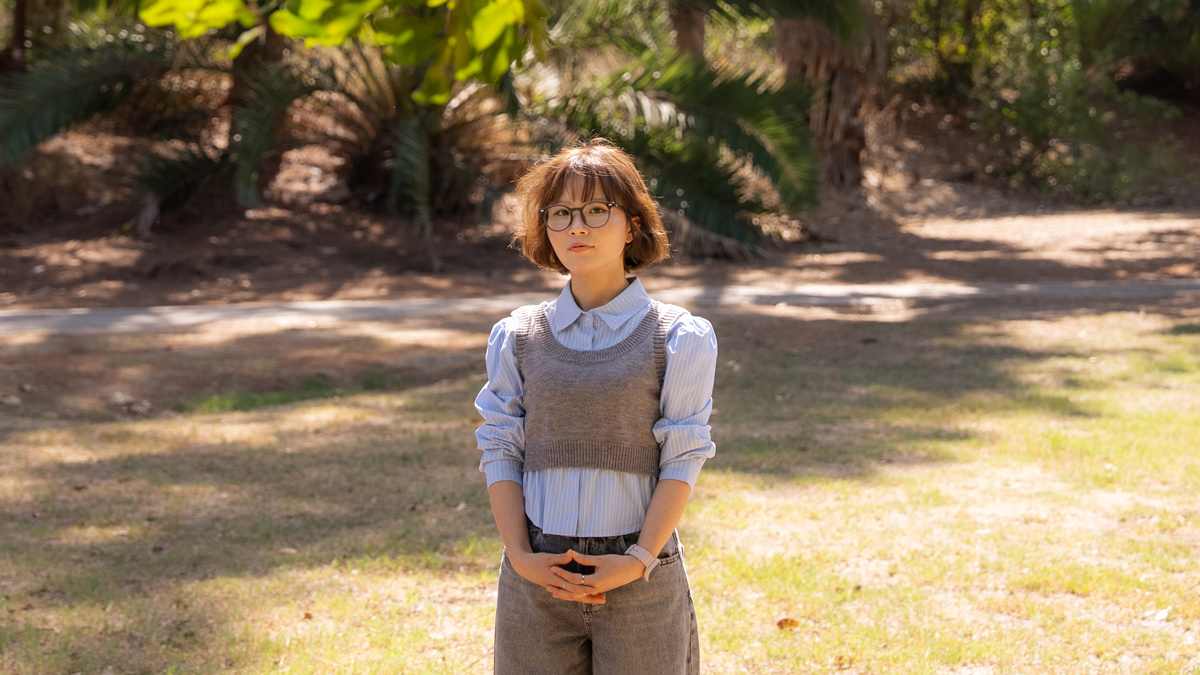
I knew what would happen if we were caught. Arrest. Endless investigations. Humiliation. Public trials. Political prison camp. And the possibility that I might lose the people I loved most in the world.
My mother and aunt were trembling with fear. I had to hide my own fear to tell them what I could only hope. We will survive. We spent the night being tossed back and forth on the East Sea. Black waves lifted our boat like a toy before smashing it down again. Every crash sent water over the sides and threatened to swallow us up.
Suddenly, a patrol ship appeared. Its lights stabbed the water, blinding us, and started coming closer and closer. It was coming for us. My chest pounded so hard I felt it might burst. I thought of the sleeping pills we had brought.
We had agreed that if capture became inevitable, we would rather take our own lives. It was a fate we preferred to execution or prison camps. As the coast guard closed in, I wondered, is it time for the pills?
But I refused to give in. We were so close. I steered away from the searchlights, surrendered the boat to the churning water, and pushed on forward.
Suddenly, the patrol vessel stopped and turned back around. They could no longer chase us. We had reached the maritime border. The sea calmed, as if it was welcoming us to freedom. And as the sun rose, we saw the outline of land.
A South Korean fisherman, hearing radio reports that North Korean patrols were in pursuit, realized we were the boat being chased. He steered his boat toward us and said, "Welcome. You are safe now."
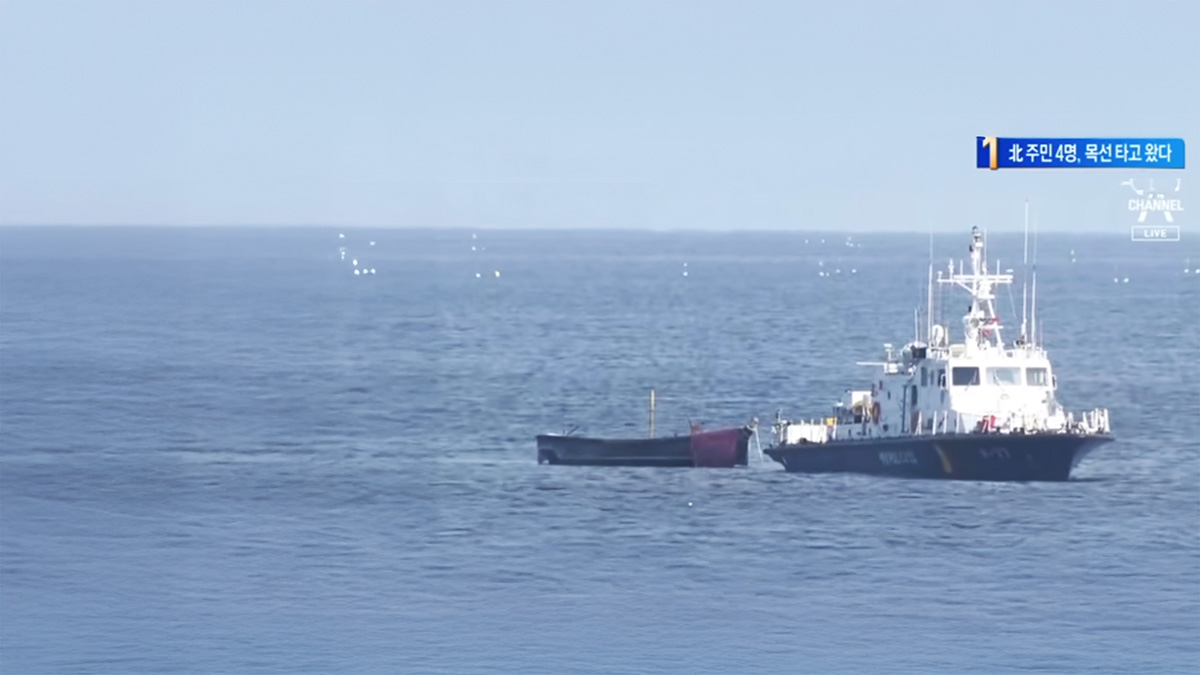
It’s been almost two years since we arrived in South Korea.
I still remember moving into our apartment and using a showerhead for the first time, experiencing hot water flowing straight from the tap. I couldn’t believe it. That day, my mother, my aunt and I took turns showering, laughing, and saying to each other, “So this is what a human life feels like.”
For the first time in my life, I could choose my studies, my job, my clothes, my hobbies—even the way I spoke—for myself. It felt like an entirely new world. We were being reborn, leaving behind a past of silence and control for a life with dignity and a future we could choose ourselves.
My mother began studying for a professional certification. And my aunt enrolled in social welfare classes to help others. I studied hard and was recently accepted into Ewha University. I have also been active in North Korean human rights activism and I even started a YouTube channel to show the world what it looks like to start a new life in South Korea.
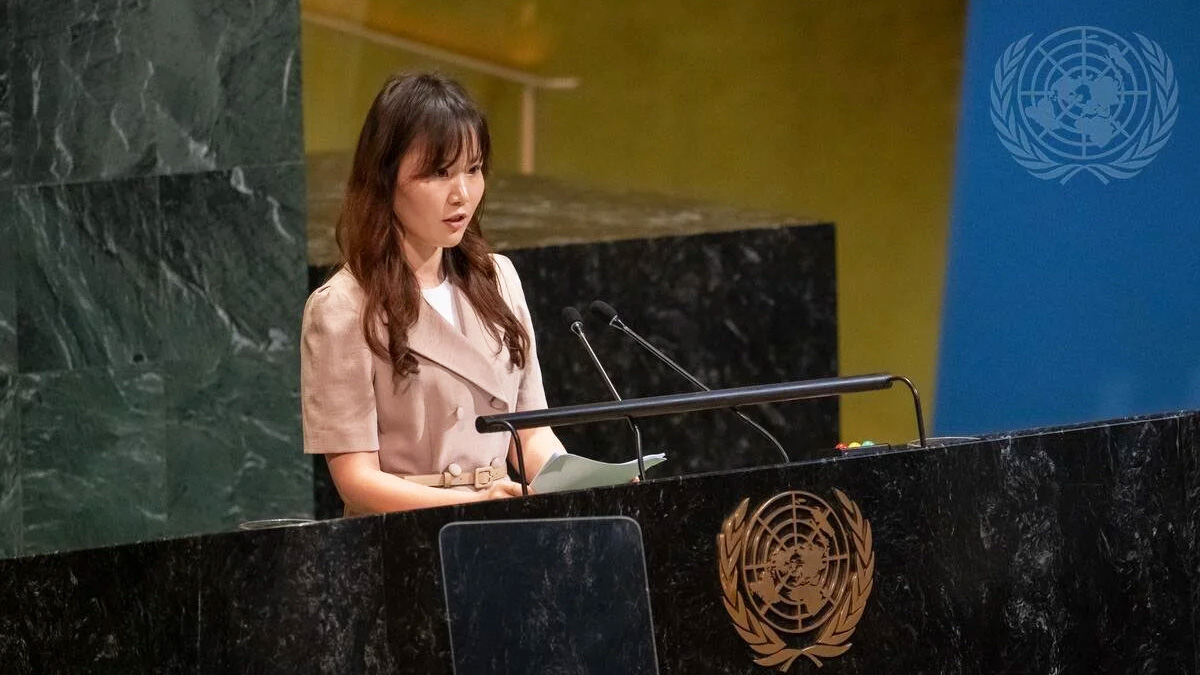
Hope is dangerous for the North Korean government. Millions of people live with anger and sadness, but even more live in resignation. Most do not realize their rights are being violated—they don’t know what “rights” are. I once believed it was normal for the state to control every part of our lives. I thought every country lived this way.
But the moment you realize life could be different, hope begins to take root. And once hope exists, change is no longer unimaginable.
My dream is that someday North Korea will be a place where young people choose their own paths, where no one is punished for their words, and where every person lives as the true owner of their life. While so much of North Korea’s reality is dark, change is already happening. And what sparks that change is information. A single truth from the outside world, a glimpse of what life could be, can plant a seed of doubt, or ignite a spark of hope.
That’s why I speak out. If I don’t tell my story, who will tell it for me? If I stay silent, will the death of my friends, and the suffering and starvation my family endured be forgotten?
Right now, in North Korea, there is someone just like me—sitting in a dark room, secretly watching a South Korean broadcast, quietly wondering: Could I also live like that?
I want my story to prove that this hope can become a reality. I want to stand in the middle of that change. Not just as someone who escaped to enjoy freedom, but as someone determined to one day share that freedom with all North Korean people.
Freedom is not given, but it is something we can achieve. With your support, we can write a future where all North Korean people are free.
Foreign media gave Gyuri a glimpse of the outside world—and the courage to seek freedom.
Increasing North Korean people’s access to outside information is one of the most effective levers for change in the country. And that is exactly what we’re doing at Liberty in North Korea
In partnership with North Korean defectors and engineers, LiNK develops tailor-made technology, tools, and content that help people inside the country access more information more safely. These glimpses into the wider world build people’s resilience to the regime’s propaganda, and emboldens them to imagine a different future for themselves and their country.
Help fuel work that’s directly supporting North Koreans driving change on the inside.




